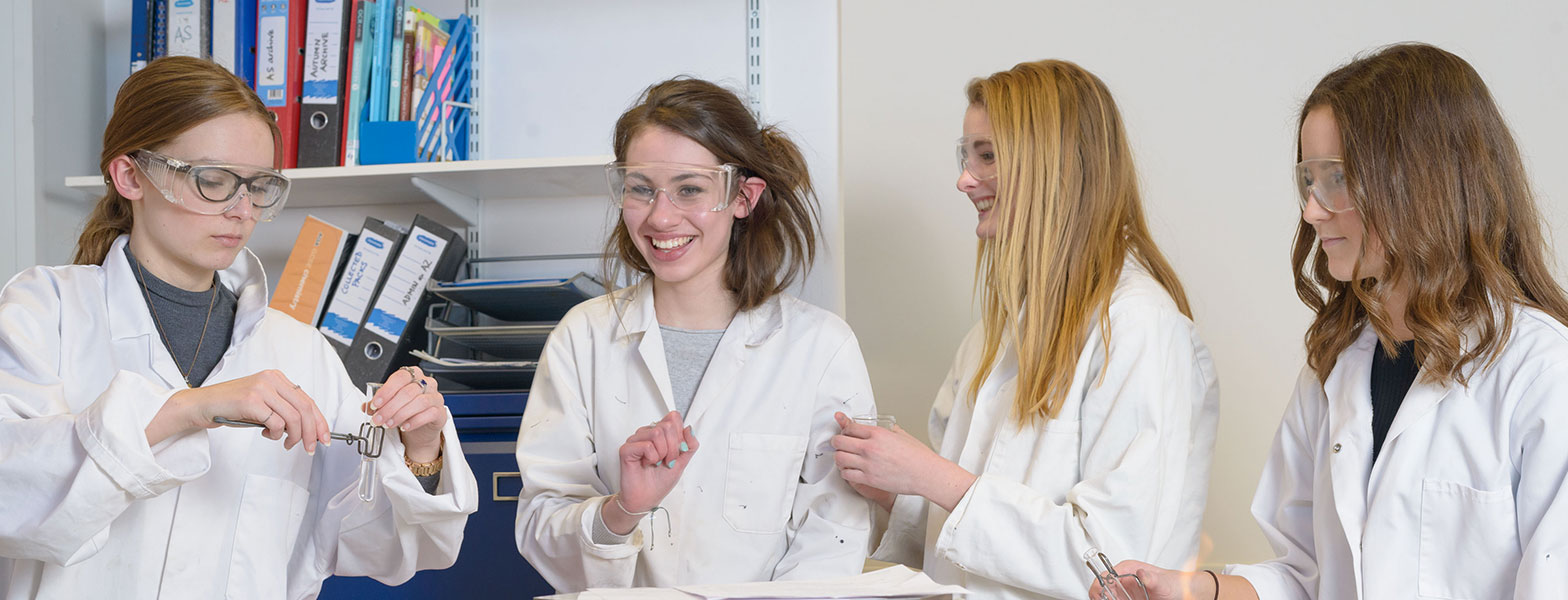
Why choose Biology?
Students choose Biology to get into higher education or to pursue a particular career, but above all because they are interested in studying this challenging, innovative practical science and because they enjoy it. It is an essential subject for Medicine and Veterinary Science. A Level Biology is particularly valued by universities whatever course you ultimately apply for.
Specification Code: H420
The course content is split into six teaching modules:-
1. Development of practical skills in Biology
2. Foundations in Biology
3. Exchange and transport
4. Biodiversity, evolution and disease
5. Communication, homeostasis and energy
6. Genetics, evolution and ecosystems
The teaching of practical skills is integrated within the theoretical topics and they are assessed through written papers and the Practical Endorsement (non examination assessment)


The assessment overview for A Level consists of 3 written papers:
Paper 1
Biological processes (100 marks. 2 hours and 15 minutes.) This paper assesses the content from modules 1,2,3 and 5. Contributes 37% to the overall assessment.
Paper 2
Biological diversity (100 marks. 2 hours and 15 minutes.) This paper assesses the content from modules 1,2,4 and 6. Contributes 37% to the overall assessment.
Paper 3
Unified Biology (70 marks. 1 hour and 30 minutes.) This paper assesses the content from modules 1 to 6. Contributes 26% to the overall assessment.

Mathematical requirements:
In order to develop the skills, knowledge and understanding in A Level Biology, the appropriate areas of mathematics relevant to the subject have to be taught. 10% of the marks available within written examinations will be for assessment of mathematics. The areas covered are:-
– Arithmetic and numerical computation
– Handling data
– Algebra
– Graphs
– Geometry and trigonometry.
What do we expect from you?
Enthusiasm, hard work, determination, initiative and a willingness to complete work set on time.

Trips
In the Lower Sixth spend a day at the Oxford Natural History Museum for a series of lectures and workshops given by the university’s staff.
In the summer term of the Lower Sixth all A Level Biology students usually go on a residential field course at Dale Fort in Pembrokeshire for which there will be a charge of about £340- £390.

University and Careers
Biology is a great subject to have studied whatever your chosen career path. You will develop your ability to: think and work logically, to communicate your ideas accurately and concisely, to evaluate evidence to decide whether it supports a particular argument and to consider the ethics of controversial genetic research.

Which subjects go well with Biology?
Biology goes well with most subjects and many students chose to study other STEM subjects such as Chemistry or Maths with Biology. However, they are not essential and students can still achieve top grades without them. Some of the topics in A level Biology have links to Psychology and Physical Education and students have also reported that the analytical skills they develop in Biology are useful for History and languages.
Preparatory work for studying Biology in the Sixth Form
There are many interesting and entertaining programmes on a range of media which will help you develop a deeper understanding of Biological issues in the World. You should try to read at least popular science book over the summer. Most large bookshops have a special section. Suggested titles include:
The Human Brain by Susan Greenfield
The Language of Genes by Steve Jones
The Man who mistook his Wife for a Hat by Oliver Sacks

